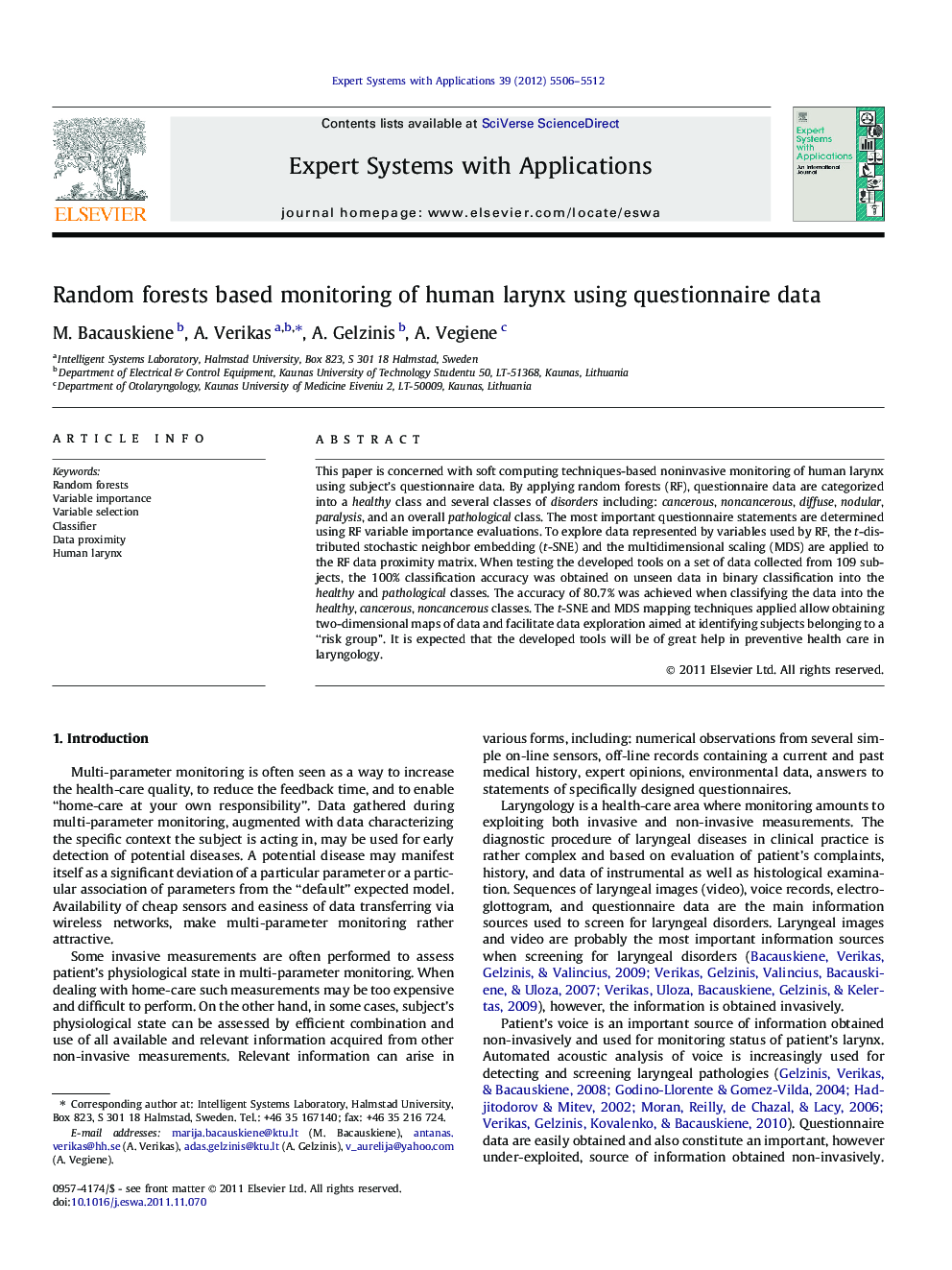| Article ID | Journal | Published Year | Pages | File Type |
|---|---|---|---|---|
| 384887 | Expert Systems with Applications | 2012 | 7 Pages |
This paper is concerned with soft computing techniques-based noninvasive monitoring of human larynx using subject’s questionnaire data. By applying random forests (RF), questionnaire data are categorized into a healthy class and several classes of disorders including: cancerous, noncancerous, diffuse, nodular, paralysis, and an overall pathological class. The most important questionnaire statements are determined using RF variable importance evaluations. To explore data represented by variables used by RF, the t-distributed stochastic neighbor embedding (t-SNE) and the multidimensional scaling (MDS) are applied to the RF data proximity matrix. When testing the developed tools on a set of data collected from 109 subjects, the 100% classification accuracy was obtained on unseen data in binary classification into the healthy and pathological classes. The accuracy of 80.7% was achieved when classifying the data into the healthy, cancerous, noncancerous classes. The t-SNE and MDS mapping techniques applied allow obtaining two-dimensional maps of data and facilitate data exploration aimed at identifying subjects belonging to a “risk group”. It is expected that the developed tools will be of great help in preventive health care in laryngology.
